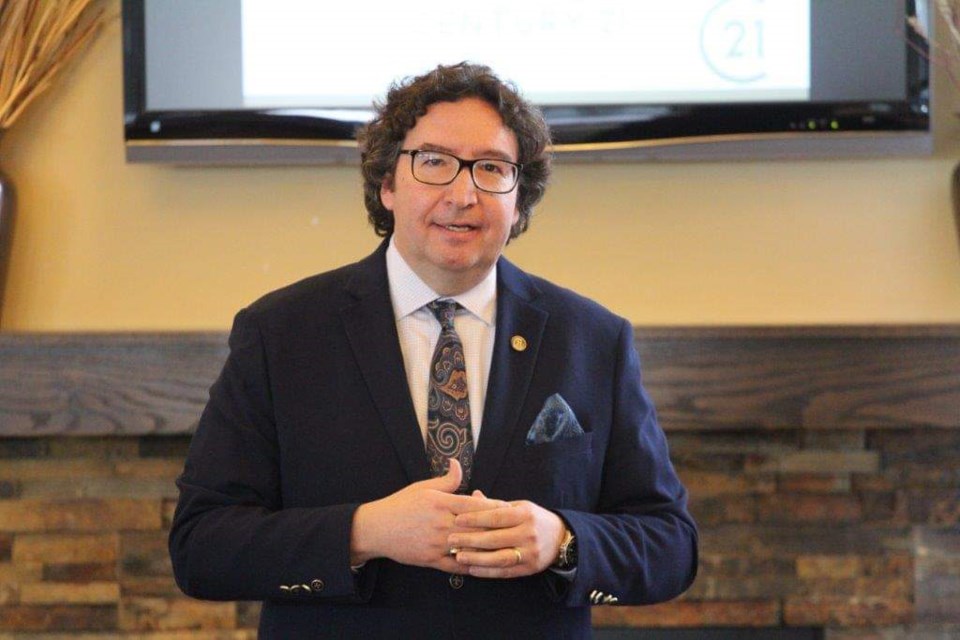Lord Mayor Gary Zalepa says he considers Premier Doug Ford’s announcement about appointing facilitators to look at regional governments a positive move for Niagara.
The announcement came week, while Ford was speaking abot legislation to break up Peel Region..
Like Zalepa, Regional Chair Jim Bradley told regional councillors last Thursday he is also looking forward to the appointment of a facilitator to examine Niagara’s two tiers, and their roles and responsibilities.
But both Zalepa and Bradley stressed they are considering it an opportunity to improve regional service delivery, not to dismantle the region.
Bradley said at last he was pleased to hear the province is “considering the unique circumstances in each of the regions across Ontario,” and making “careful decisions” designed to help tackle the housing shortage crisis.
He is hoping a provincial facilitator may help find ways to build more attainable homes as efficiently as possible, as well as find more opportunities for shared services across the region. “That was some of what was discussed during Niagara Week,” which saw politicians and staff attend meetings at Queen’s Park with provincial ministers to discuss those topics.
Bradley says he’s glad to hear there will not be a “cookie-cutter approach” to regions across Ontario, adding, “this comes as an open-ended process, with no predetermined outcomes.”
Andrea Kaiser, Niagara-
on-the-Lake’s regional councillor, heard Bradley speak at the meeting, and said she was pleased that “it’s not going to be one scenario that fits all. It sounded encouraging, that there will be an opportunity to keep our regional structure.”
The region is already discussing “transformational issues” regarding how it charges municipalities for some services, such as garbage, to move from assessment to being charged by household, Kaiser said.
She points to the way public transit is being handled as a step in that direction, taking population into account. “The region is already having those conversations around shared services and population versus assessment. I think that would satisfy many municipalities, that it would be more equitable.”
Kaiser said she would like to see the region share services so that municipalities could access support when needed, such as planning and economic development. “The more we move to less duplication and look at more shared services, the better it bodes for municipalities.”
Referring to early reports talking about dismantling regional governments, Zalepa says if that were the case, “who’s going to do all the stuff the region does?”
What is happening in Peel is very different, with two large cities that can exist on their own, he says.
“In Niagara, that’s not the case. We don’t have a Brampton or a Mississauga.”
Niagara’s distinctive communities “are part of our success,” he says. “We can offer a lot that appeals to different people. We can attract businesses, residents and tourism, for different reasons.”
Regional council began working on how to improve services during its last term, when Zalepa was a regional councillor. Those discussions also “respected the fact that we have these distinct differences, and that we keep decision-
making at the local level because local politicians are in better touch with their community.”
When “larger entities have crossed jurisdictions, like health services and schools, they have not equated to better services for local municipalities,” Zalepa says. “For me, that’s a hard stop — larger amalgamations do not make bad things better. So I’m glad to see the premier make statements that say he wants to reach out to local municipalities and hear what we have to say. I applaud him for that. But we need to be really serious about how we improve our shared service delivery so that we can control any changes, and have a homemade solution.”
Zalepa says he believes the provincial government wants to make sure “our governments are being run more efficiently, but also being respectful of the communities we live in. I’m hoping we can get there, and at the end of the day, the region will continue to provide services such as garbage, social services, housing and public health — all those things that still need be done. Delivering them at a municipal level makes no sense.”
There are other “great things we can do together, things like HR and planning, that can be done as a shared service but still be distinctly delivered to each local municipality. That’s what we need to get to, that would bring efficiencies.”
“I see it as a great opportunity,” Zelepa adds. “I feel really encouraged by what I’m hearing, that there will be a conversation about what works best for Niagara.”
In January 2019, following the October 2018 municipal election, Ford announced he would be taking a look at regional government, with a goal of looking at governance, decision-making and service delivery, seemingly with an end game of amalgamation to reduce the number of politicians and cut costs. Several options were discussed locally, including a merger of municipalities while keeping two levels of government — an idea some larger municipalities embraced, and smaller municipalities spoke out against, but nothing came of it.
That's a discussion Zelepa hopes not to hear, he says. “What I don't want is for the conversation to wade into amalgamation. I think that would be unproductive. The focus has to be on how we can actually make things better.”
The next step, Zalepa says, will be the provincial appointment of a facilitator, and hopefully opportunities for both regional and municipal representatives to share their visions for service delivery in the future.
